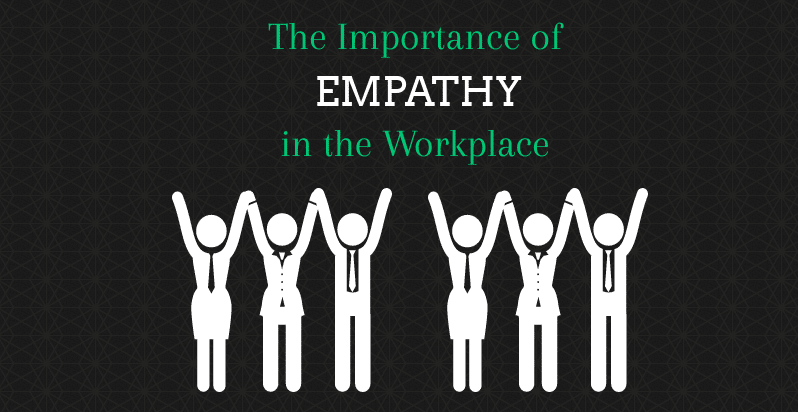
The Importance of Practicing Empathy in the Workplace
Empathy is the capacity to comprehend and share another person’s feelings. More than just acting with sympathy, empathy allows us to take a walk in someone else’s shoes, and understand them better as a result. Empathy is a crucial element of every human relationship, and the workplace should be no different. The importance of empathy in the workplace is often downplayed. However, shared empathy among colleagues and management does wonders for workplace morale. It demonstrates respect, and proves a level of care extending beyond the workload. Leaders who display empathy are far more likely to foster a productive and loyal team, and are more highly regarded. The Harvard Business Review lists empathy as a core competency for leaders. So, what exactly is the importance of empathy in the workplace?
Why does empathy matter at work?
Annie McKee recounts in the Harvard Business Review the story of a man who approached her for help. He needed to become more empathetic. After 7 years of fixing financials within a large business, everything he had worked at started falling apart. Employees were quitting, teams weren’t getting along –in each division he managed to drastically cut costs, but he left behind a toxic culture. His focus on results, and lack of care for relationships, had essentially imploded.The moral of this man’s story is that empathy is a kind of glue that keeps relationships flourishing, and teams functioning. When employees think that their feelings and struggles are being completely ignored by management, it is easy for them to think the company isn’t invested in them – results seem the only important factor.Empathy not only allows managers to better understand their employees, but it also allows employees to push themselves further without concern that they will be scalded for any unsuccessful attempts. Empathetic workplaces see far higher levels of employee satisfaction and productivity.
How can you build empathy?
Empathy is crucial to all successful workplaces, but that doesn’t mean that it comes naturally for all leaders. McKee lists three simple steps that leaders can take to improve their levels of empathy.
- Listen intently, observe, and pose questions
McKee suggests taking advantage of the moment, and closely observing employee’s body language and statements, instead of focusing on what you’re going to reply to them. This sounds a lot easier in theory, as it can be quite difficult to detach yourself from the practice of being completely in control of the interaction. Furthermore, you need to cease presuming that you know exactly what everyone is feeling and thinking. Even if your assumptions turn out to be correct, there is also far more that you can learn if you listen and observe. - Intently engage with the moment and the person
Distractions are a plenty in this era. It is all too easy to let the ding of the emails shift your focus from your meeting to your phone. There will forever be a deadline on the horizon, a phone call to answer, a crisis breaking out, or a dispute to settle. Each of these distractions leads us further away from the moment, and into what McKee calls a “sky is falling” headspace. When in this headspace, our first instinct is fight-or-flight – the complete opposite headspace required to nurture healthy workplace relationships. McKee notes that this headspace is very tough to get out of, and recommends meditation and deep-breathing to help.
- Multi-tasking needs to stop!
Multi-tasking is heralded as the ultimate in productivity, however McKee suggests that it actually just reduces the focus you have on each task. If each of the tasks you’re trying to complete are important, there’s no way you’ll get each of them done to the best of your ability. Multi-tasking is especially detrimental when it comes to dealing with people. If you’re composing an email to one employee whilst having a conversation with another, neither employee is experiencing your full attention – and one of them will certainly recognise that.
More empathy in the workplace for happier employers
Employees want to feel valued, appreciated, and as though they matter. After all, your business wouldn’t be functioning without them. Ask your employees for feedback, listen to their questions and queries, and invest your time in them. Healthy relationships are absolutely vital to your business’s success, and ensuring your actions are fuelled by empathy is a great way to get started.